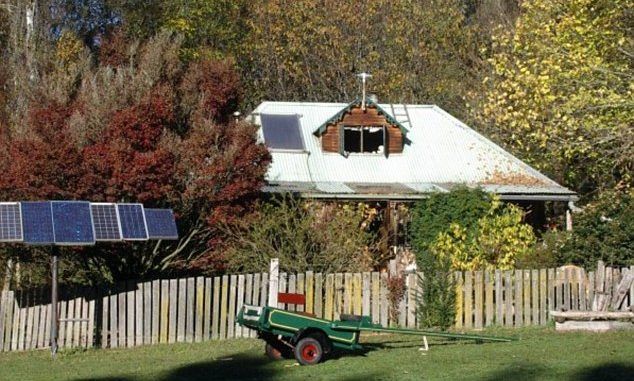
When she was just 5 years old, Jill Redwood decided she wanted to live like a hermit. For the last 30 years, Redwood has lived off the grid in a house she made herself out of reused and recycled material. The home’s walls are made from cow dung and timber offcuts.
From The Daily Mail:
Ms Redwood, a writer and environmental activist, hates supermarkets and only eats food she’s grown and made herself on her 15-acre property on the edge of the forest in East Gippsland in Victoria.

BYPASS THE CENSORS
Sign up to get unfiltered news delivered straight to your inbox.
You can unsubscribe any time. By subscribing you agree to our Terms of Use
Ms Redwood, who says she is ‘over 50’, spent her early adult life working in Melbourne as a lab technician before she started travelling around Victoria working a variety of different jobs including truck cleaning, fruit picking and labouring.
She lived on a number of different properties before buying the land in East Gippsland in 1983.
Ms Redwood said the home took eight years to build, during which time she lived in a smaller dirt-floored bark hut on the property.
She said she had no homebuilding experience but had previously built shacks and chicken sheds, and had read about how early settlers used to build their homes.
‘It’s just like baking a cake, you just follow the recipe,’ she said.
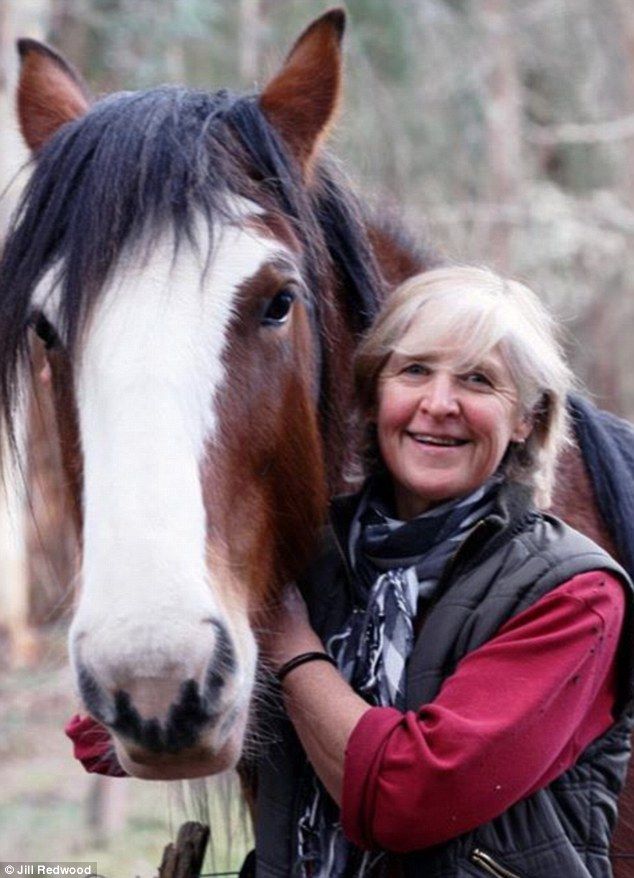
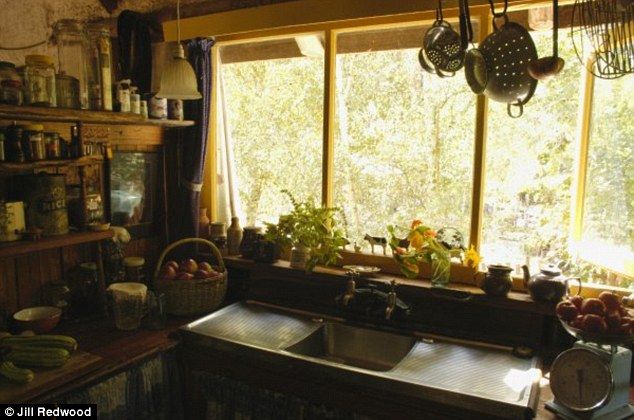
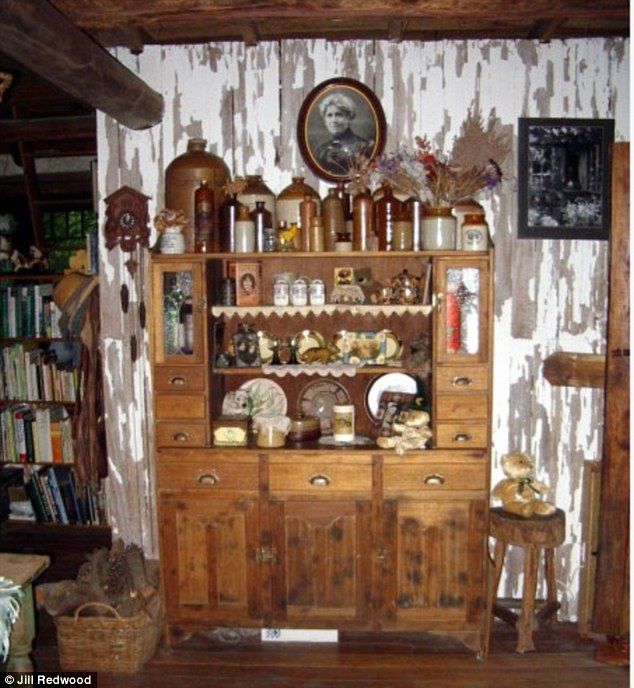
Ms Redwood said the cracks in the timber walls of her home were filled in with a mixture of cow pats and lime.
‘That is another early settlers’ method for chinking up the holes in logs and awkward-to-get places,’ she said.
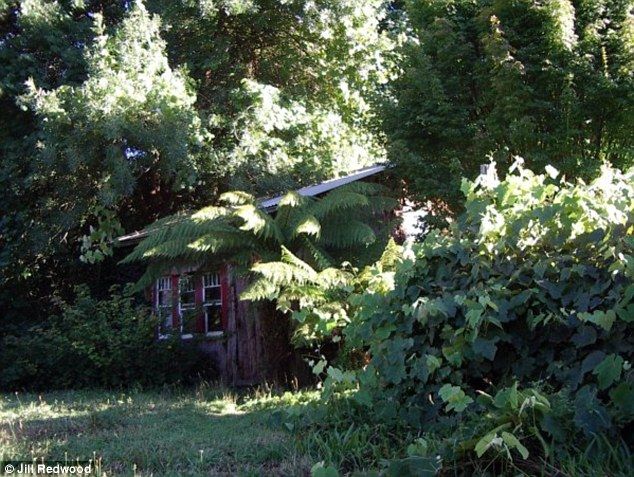
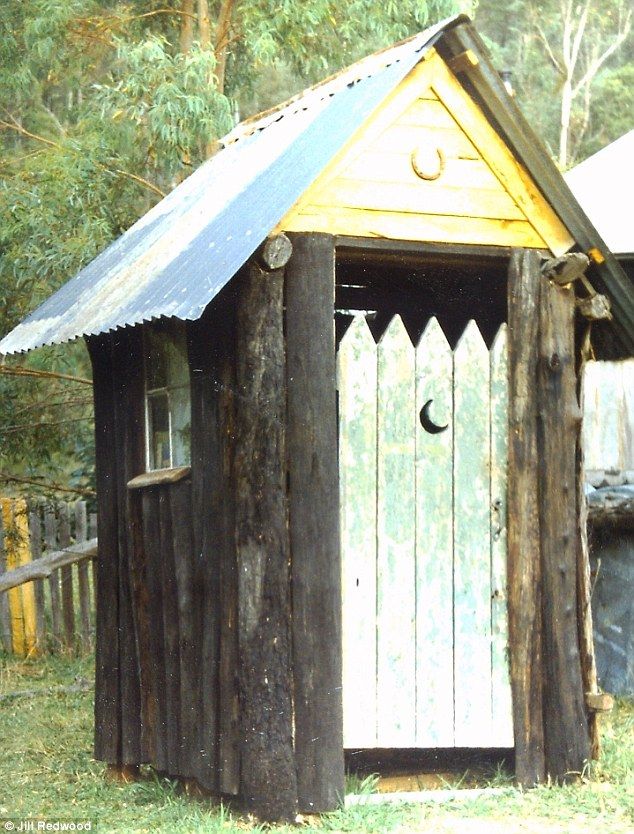
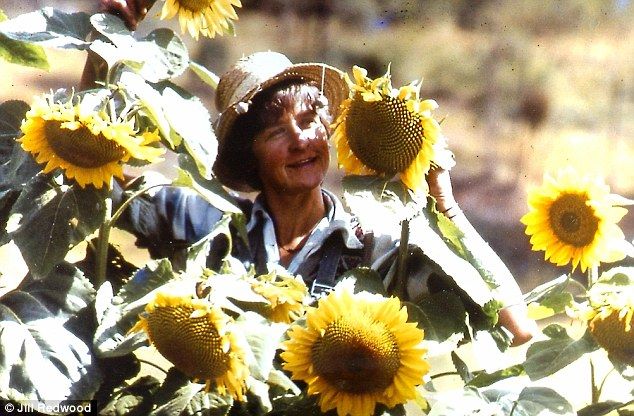
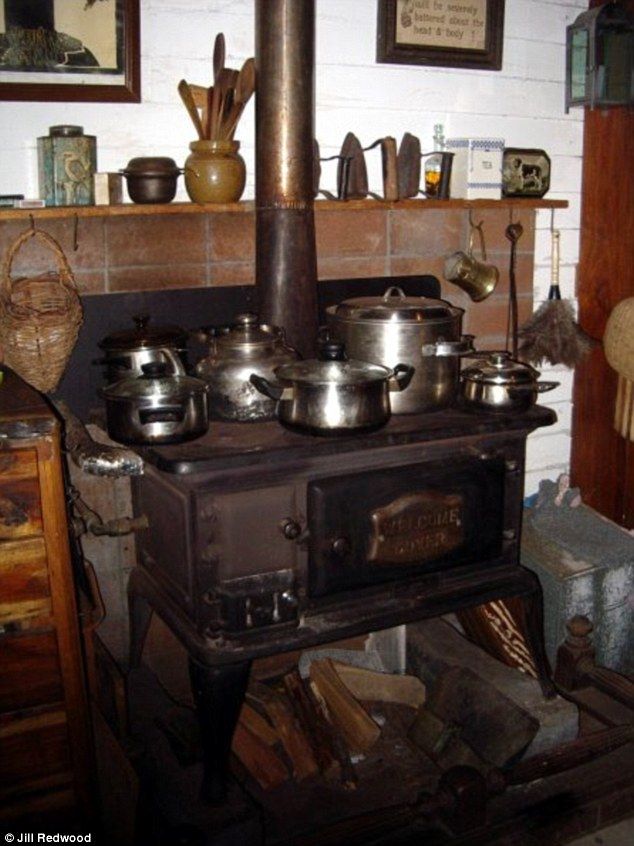
‘It’s non-toxic and it seemed like it was the sensible thing to do. Cow poo isn’t all that offensive, it’s really just mushed up grass.
‘Once you gather a bucket of it and mix it with lime it actually has a fishy smell until it’s dried.’
Ms Redwood said the house cost less than $3000 to build, with most of the money spent on roofing and floorboards.
Her house is totally solar-powered, with hot water coming from her wooden stove.
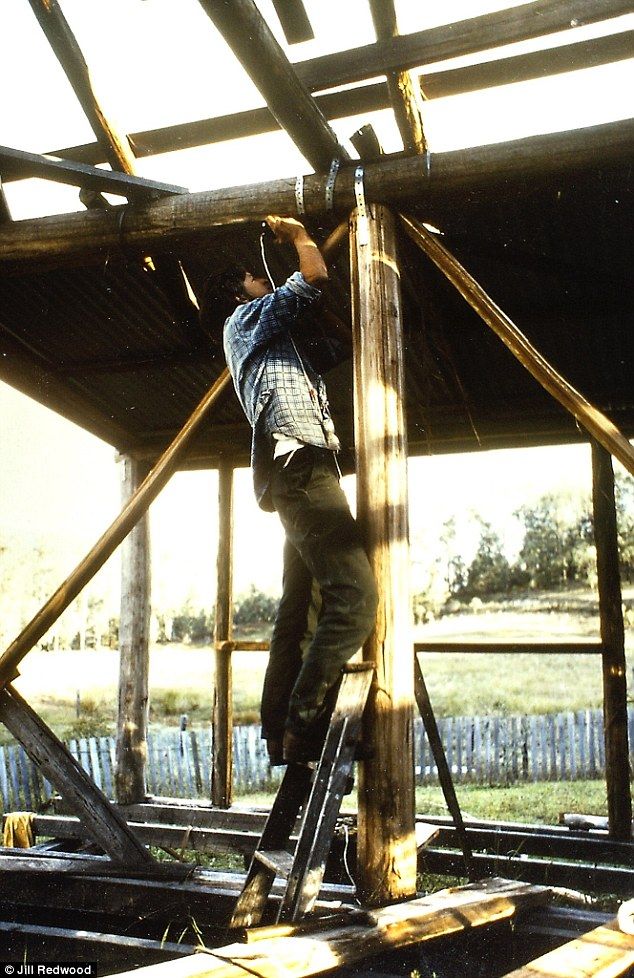
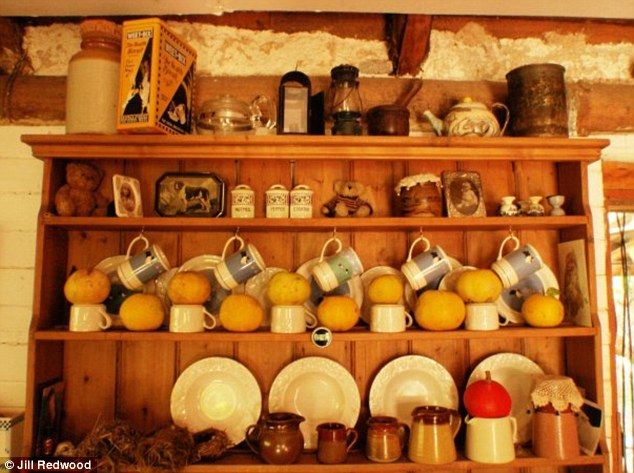
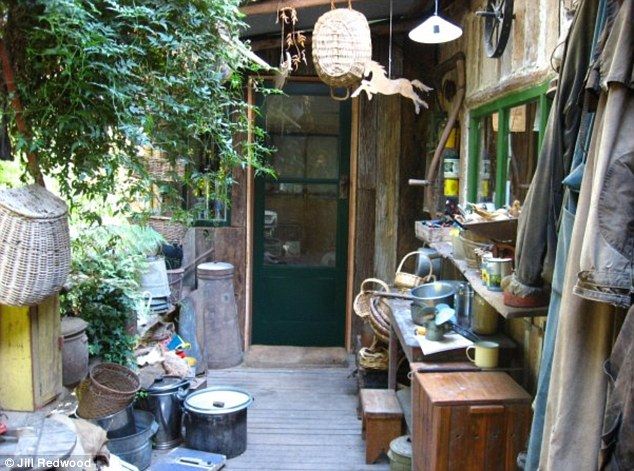
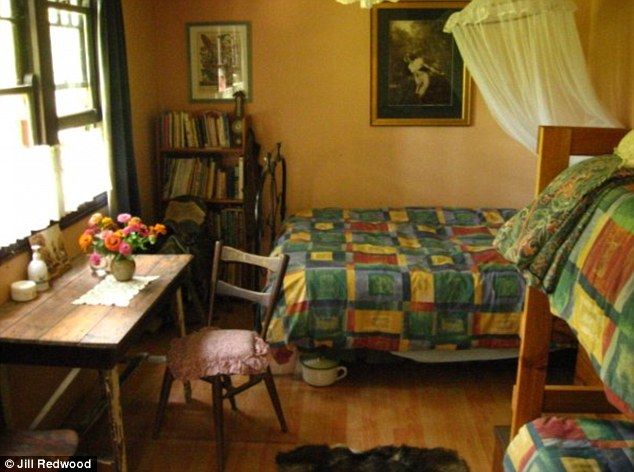
‘When I cook the food it warms the house,’ she said.
‘The power I use is minimal – I need the office equipment like the computer and scanner and the modem for the internet.
‘I also use lights at night, a radio and a food processor and when the sun really shines and there’s a lot of power coming in I’ve got a washing machine. That’s a luxury.’
Ms Redwood’s toilet is an old-fashioned ‘dunny’.
‘When it fills up you’ve got to carry it out and bury it,’ she said.
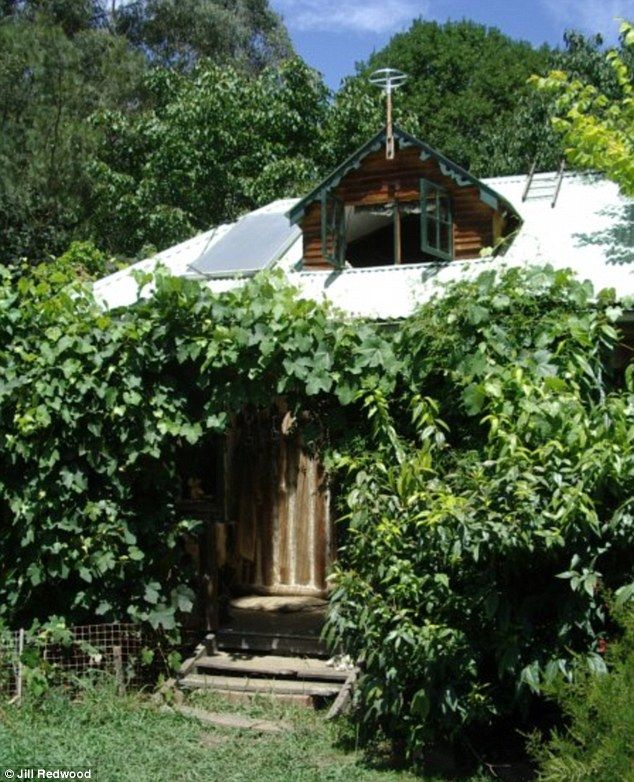
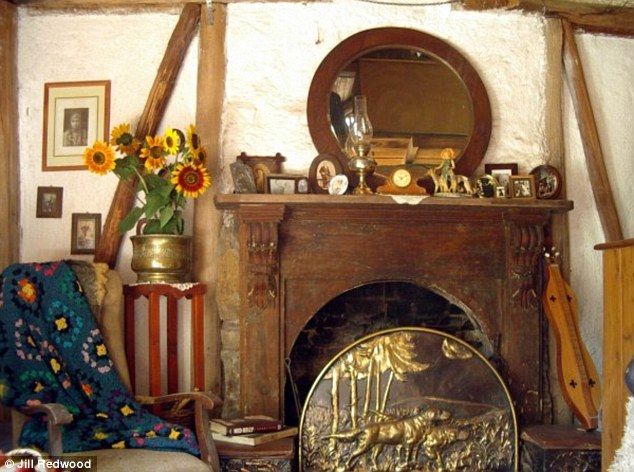
All Ms Redwood’s possessions including furniture, bedding and cutlery are either salvaged from the tip or bought second-hand.
‘I know it sounds awful but a lot of it comes from tips… I’m a tip rat from way back,’ she joked.
‘It’s amazing the things that you find people throwing out.’
Ms Redwood said she is passionate about preserving the environment and her local forest, and so she believes she should reflect that in her lifestyle.
‘The way the world is going it’s just swallowing up the earth and all the nature that is left and what I’m trying to do is not only walk my talk but campaign for better treatment of the planet and its animals,’ she said.
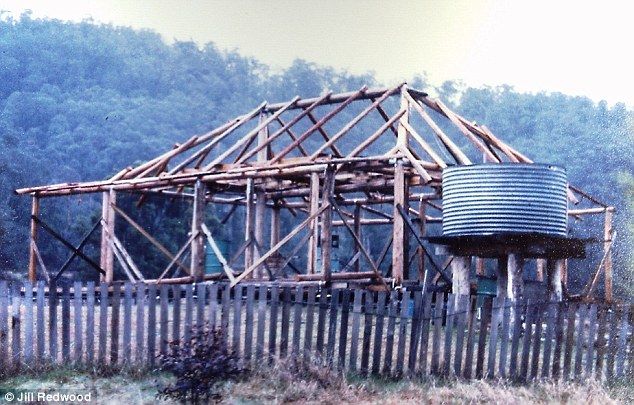
Ms Redwood said became disenchanted with society at a young age.
‘[Society] seemed to be destroying things that I really loved, like forests and nature,’ she said.
‘Everything was pointing me in the direction of just getting away from society and having my own little patch and animals.
‘A love of animals was a big part of it.’
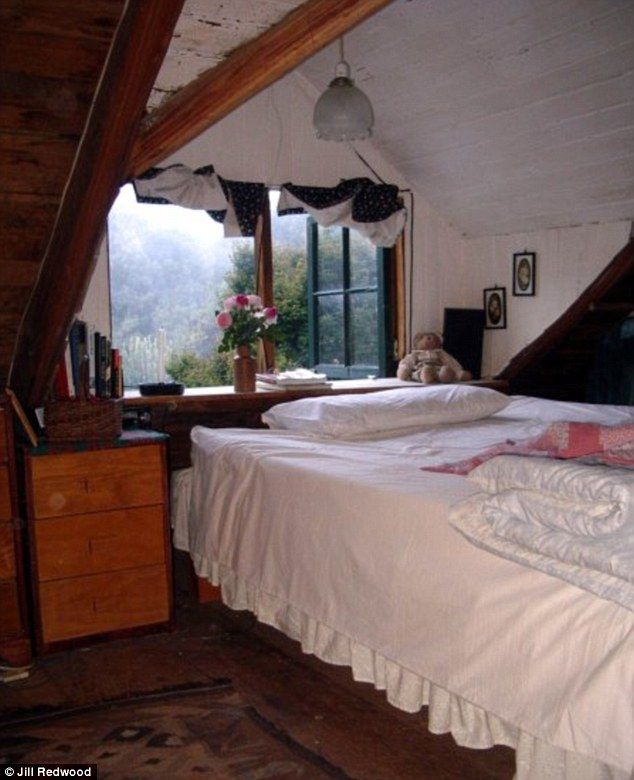
She added that she has always preferred a solitary lifestyle.
‘I’ve never liked lots of people and crowds. Individuals are fine but when humans get together in big numbers they’re bad news from what I’ve seen,’ she said,
‘I’ve never had a full-time partner for any length of time.’
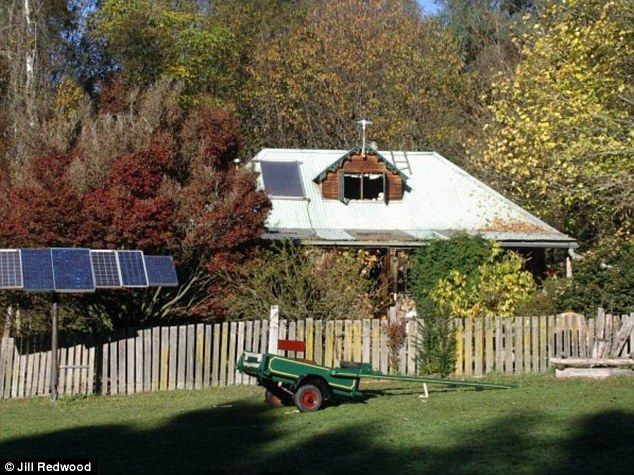
Ms Redwood occasionally has ‘WWOOFers’ (Willing Workers on Organic Farms) stay with her, but she is happiest when it’s just her and her animals.
‘I have had people sharing the place, I’ve had people stay in the bark hut,’ she said.
‘But I’ve mostly always just done my own thing and yeah, people have come and gone.
‘Animals are so reliable, faithful and honest and they have no baggage.’
Ms Redwood has many animals on her property including dogs, horses, milking goats, geese and chickens.
She makes her own goats cheese and has a large fruit and vegetable garden.
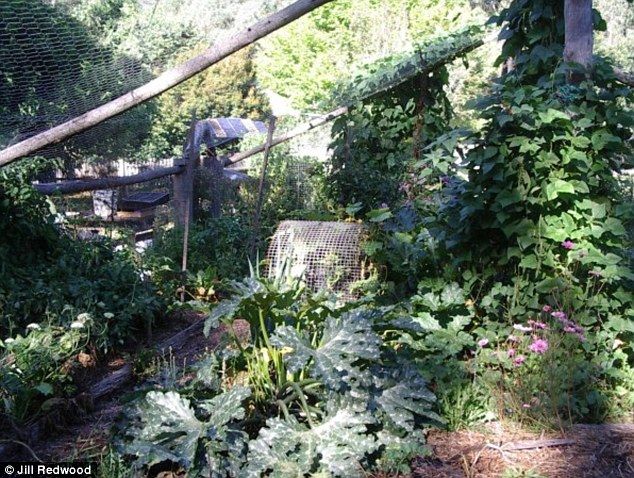
Ms Redwood only eats organic, vegetarian food she has produced herself – apart from a few exceptions like olive oil, flour, chocolate and Vegemite.
‘It depends on the season, the garden dictates what’s on the menu,’ she said.
‘Even in winter when people think there’s not much growing there’s loads.
‘In summer there’s too much to eat, it’s embarrassing there’s so much food here.’
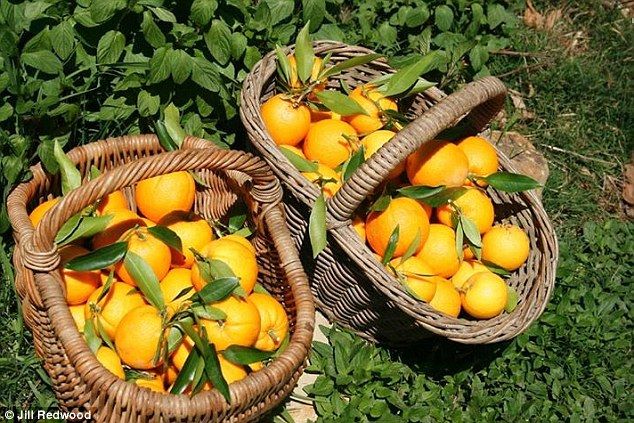
Ms Redwood – who makes juices, pickles, jams, sauces and dried fruits among other things – says she doesn’t understand why more people don’t grow their own food.
‘I would hate to have to rely on a supermarket and denatured food to sustain me,’ she said.
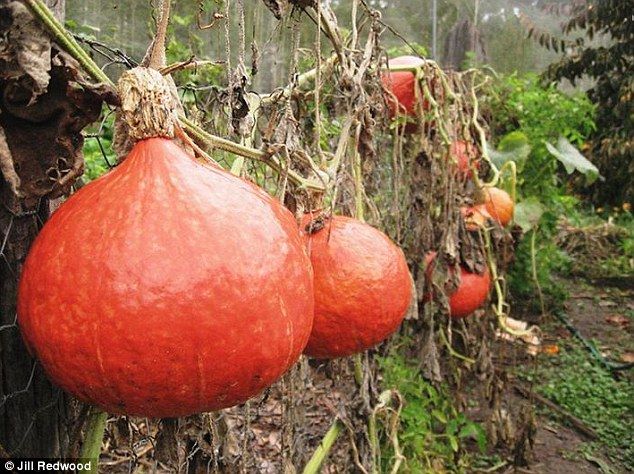
‘It seems alien when you go into a supermarket see the things people buy… All the life and goodness processed out of it with additives that you wouldn’t wash your floors with.’
Ms Redwood makes a small amount of money freelance writing and cartooning, writing for Earth Garden magazine and by paying herself an honorarium from an environmental organisation she runs.
‘It’s nothing all that reliable but it’s enough to pay the rates and buy a bag of chook feed,’ she said.
‘I live on between $50 and $100 a week. I can live on very little, I don’t have to pay electricity bills.
‘Most of the money does go on the animals.’
Ms Redwood admits she is ‘a bit extreme’ with the lengths she goes to stay ‘off the grid’, but she thinks most people could take steps to make their lifestyles more environmentally friendly.
‘I know a lot of people that live a town life don’t have a lot of time outside of their work and they often don’t have a lot of room for keeping chooks and stuff,’ she said.
‘Just try to have minimal impact and when you do have to buy from shops and supermarkets try to go for the most healthy food with the least packaging and processing and that helps the planet as well as your own body.’


